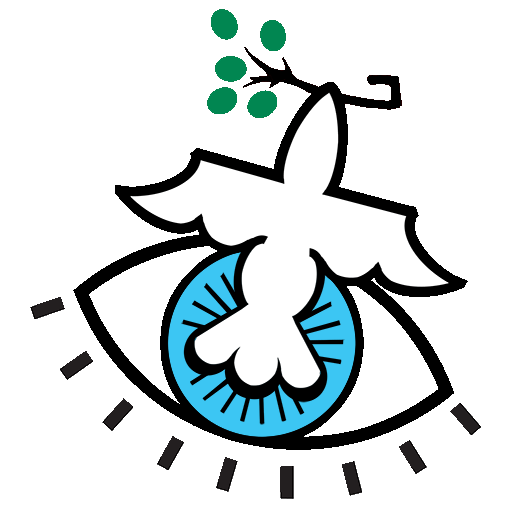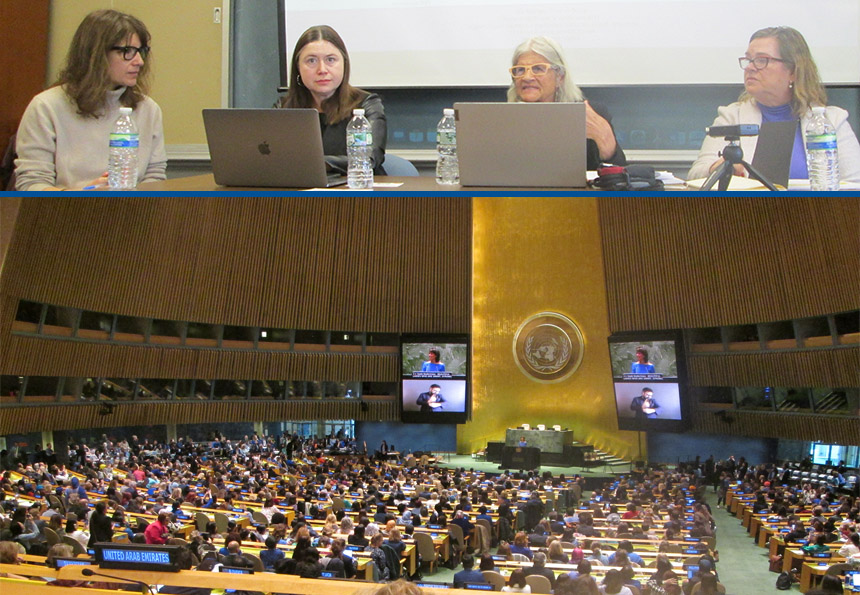This year the 67th session of the UN Commission on the Status of Women has as its special focus the digital world and how it is affecting women. We all are aware that the internet has had a tremendous impact, both positively and negatively. In PEN the internet permits us to reach new people and to work much closer with some others who used to seem far away.
At the same time it has provided a new field and new techniques for slander, torture, even murder, and the majority of the victims of these cybercrimes are women. Also, in yet another form of exclusion, the lion’s share of people not served by internet are women. All the same, in the balance it has opened so many doors for me personally that there is no way I will abandon it.
On Tuesday March 7 I was on a panel organized by the Red de Periodistas con Visión de Género, which was set up by Alicia Quiñones as an opportunity for PEN to publicize its study. This study analyzed the presence of women writers in many aspects of literary life. It was cosponsored by UNESCO, in 5 countries in Latin America: Mexico, Guatemala, Honduras, Ecuador and Nicaragua.
This study is something like the VIDA Count which PEN International has been working with for about four years. It is a numerical approach which shows the lack of gender parity in the situation for women writers in all countries. This form of the VIDA Count was meant to indicate clearly and quickly that Latin America has the same problems of online gender discrimination that are characteristic of every other region.
On Wednesday, after initial days of initial skirmishes with their chronically inept crowd control and organization snafus, both Elizabeth Starcevic and I were able to attend the Women’s Day event. Since then, we have both been going about at the Commission sitting in on whatever seems relevant to us.
I have some statistics that are widely considered reliable.
Many, many women journalists get threatened online.At least 73% of them have experienced some form of online threat. 23% of them also experience offline threats. These campaigns to terrorize are very successful. They go beyond the individual to include threats to their colleagues and families. 30% of women writers who are victims admit to self-censorship and 20% leave journalism entirely or move away from their previous situation. The damage to journalism as a whole is immense.
More men than women have access to the internet. One source said 37% of women worldwide have no internet and another said 57% use the internet. This doesn’t total 100 % so both must be considered approximate. In the least developed countries it is estimated that two thirds of women are offline. This opens the question of whether our efforts to get online are just finding the internet a digitized form of sexism.
It is predicted that 75% of all jobs will be in the STEM fields by 2030. This is another issue of sexism as these are the fields which are still studied by many fewer women than men.
It is obvious that we need a gender perspective on everything. Even something so apparently gender neutral as the internet turns out to be at risk of becoming a sexist tool. As I walk by the UN meeting rooms, I see signs that say this is the meeting of the Limpopo River Group, or the Continental Shelf meeting, or a wild variety of acronyms which I could not possibly remember. Every one of these concerns needs a gender perspective. Is there some woman in those rooms who is on the ball and identifying when the moment to bring up gender perspective arrives?
And back at home, are we doing the same? I hope so

